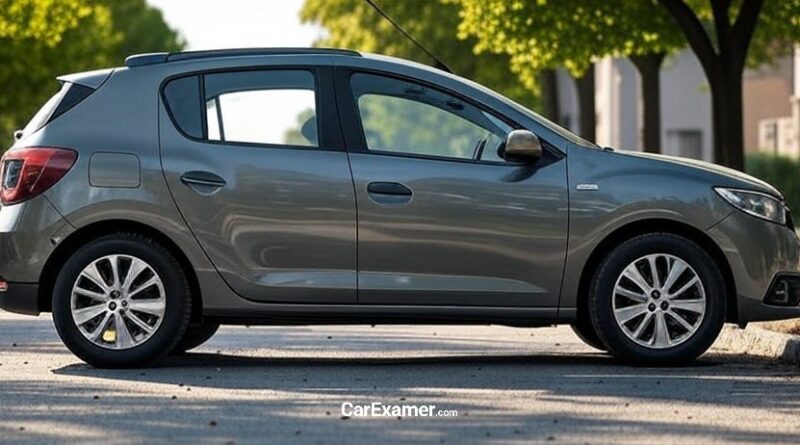Dacia Sandero Problems Common Issues and Repair Costs
The Dacia Sandero has built a reputation as one of the cheapest cars to buy new in the UK, but like any vehicle it has some known weaknesses. If you are thinking of buying a Sandero, new or used, it pays to know the common problems and how much repairs will set you back.
What is the Dacia Sandero
The Sandero is a budget supermini from Dacia, backed by Renault. It is a no-frills small hatchback that keeps costs low by sticking to simple designs, modest engines and basic interiors. This approach makes it cheap to buy and usually cheap to run. However, the trade-off is that some parts wear faster than on more expensive cars.
Common Problems with the Dacia Sandero
Below are the issues that owners most often report across different generations of the Sandero.
- Engine warning lights
Many cars show a check engine light linked to faulty sensors or minor electronic faults in the engine management system. - Timing belt wear
The timing belt and tensioners need changing at the right interval. Ignoring this can cause major engine damage. - Coolant leaks
Petrol turbo versions, especially the 0.9 TCe, are known for leaks around the thermostat housing. - Clutch judder
Some owners notice juddering or slipping when starting in first gear, especially when the car is cold. - Rust
While newer cars have improved coatings, early Sanderos and high-milers sometimes show rust on sills and seams. - Suspension wear
Bushes and dampers are basic in design and may need attention earlier than on more expensive rivals. - Infotainment glitches
The media system and Bluetooth sometimes suffer from bugs or freezing on newer cars. - LPG system faults
On bi-fuel models, problems can occur when switching between petrol and LPG. Components such as the reducer and control unit can fail.
Repair and Service Costs
Here is what you can expect to pay for the most common Sandero maintenance and repair jobs in the UK.
| Repair / Service | What is Done | Typical Cost (UK) |
|---|---|---|
| Full annual service | Oil, filter, fluid checks, general inspection | £113 to £200 |
| Major service | Includes extra items such as plugs, coolant and brake fluid | £250 to £320 |
| Timing belt change | Belt, tensioners and often water pump | £247 to £488 |
| Timing belt and water pump | Both replaced together | £178 to £250 (independent garages) |
| Brake pads (front) | Pads replaced, standard labour | £80 to £200 |
| Clutch replacement | Full kit, may include flywheel | £300 to £600 |
| LPG system part (reducer or control unit) | Replacement of faulty unit | £200 to £400+ |
| Rust repair | Sanding, treatment and repaint | £100 to £300 for small areas |
How to Keep Costs Down
- Stick closely to the service schedule, especially for cambelt and fluid changes.
- Deal with small leaks, noises or rust early before they spread.
- Use good quality aftermarket or OEM parts.
- For LPG models, get the system checked regularly and use both fuels to avoid issues.
- Update infotainment software when available.
Final Thoughts
The Dacia Sandero is cheap to buy and run, but it is not completely trouble free. Problems like timing belts, clutch wear and sensor faults are common but rarely crippling if caught in time. Repair bills are lower than average compared to many rivals, which keeps the Sandero attractive for budget-minded buyers.
If you are buying used, check the service history carefully. A Sandero with a recent timing belt change, healthy clutch and no rust is a safe bet for affordable motoring.
Buying a used VW. Buying used vauxhall, BMW, Jaguar, Ford, Volvo, Range rover, Bentley, Aston Martin, Porsche, Ferrari, Lamborghini, Maserati, Hyundai, Tesla, Honda, Pagani

